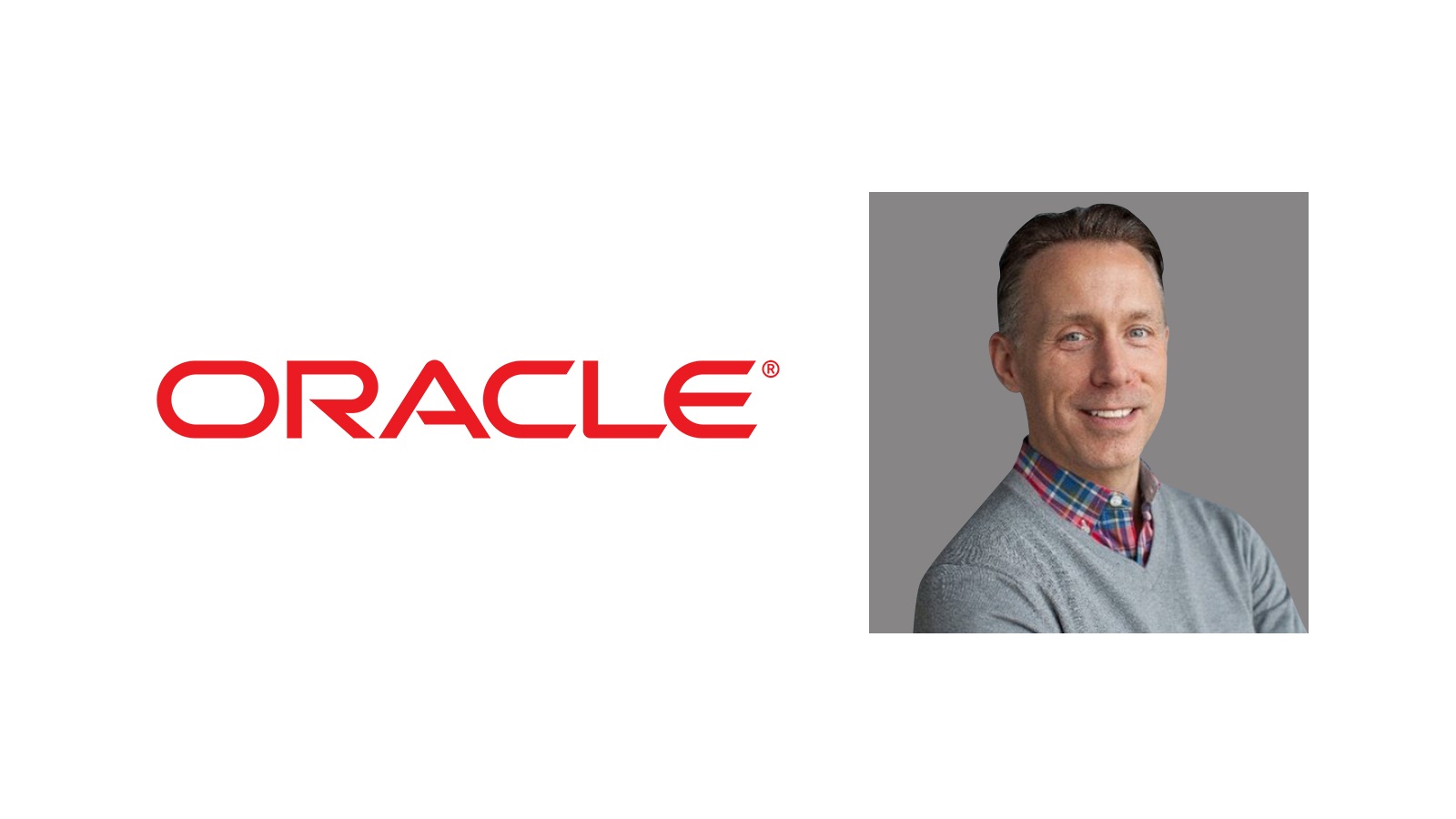


On Marketing Technology
MTS: Tell us a little about your role and how you got here.
I lead Marketing & Partner Solutions for the Oracle Data Cloud. Marketing represents all of our inbound and outbound brand development, messaging and communications as well as demand gen and growth marketing. Partner Solutions is essentially an inside sales-esque function where we operate an inbound Data Hotline for servicing customer questions and requests along with an outbound Lab that offers educational training around the ecosystem of data-driven marketing. It’s a great tool that helps the entire industry get smarter around what data makes possible for marketers.
I arrived at Oracle through the acquisition of BlueKai in 2015, where I was CMO and led marketing and inside sales. Prior to that I successfully helped launch or build a number of digital ad agencies, a digital consultancy and a few media-oriented startups in the music, entertainment and social media spaces. I learned a lot along the way. I’ve been successful through a combination of being in the right place at the right time, looking for great people to work with and offering my own unique perspective on how to drive results through advertising and marketing. I always wanted to be in advertising. The progression to marketing felt natural to me as it encompasses all the things I love: creativity, accountability, metrics and stories.
MTS: Given the massive proliferation of marketing technology, how do you see the martech market evolving over the next few years?
The market matured very quickly and most marketing organizations placed their bets on the companies and partners they want to work with by now. The biggest areas such as email, CRM, website optimization and advertising are sorted out and the winners are relatively clear. There are certainly areas where consolidation is still possible to ensure the leading companies have all the functionality they need.
There is a second tier of companies that will acquire any missing parts they still need to remain competitive, but the next two to three years is most likely about scale. Marketers are focusing their time getting the most out of their partners and maximizing the ROI for their investments in the space. They’re not likely to rip and replace their large investments because they’ve already invested quite a bit and want to see the results achieved. My gut says new players in the market must offer a truly revolutionary improvement to the existing platforms to get into consideration with the larger brands.
There is space for the small to mid-size business market that can’t afford the large investments, but I think the big brands are settling in pretty well. I do see the market still headed towards consolidation across channels as well as players within channels. Most of what’s been developed in a digital environment is going to be leveraged in TV, Outdoor and Experiential marketing channels. Marketers are going to arrive at a true cross-channel attribution model that goes beyond “standard” digital and allows them to better understand the impact of spend everywhere.
MTS: Is there a false dichotomy among sales tech, ad tech and mar tech right now?
Yes and no. These delineations were useful while the categories were being established and grown, but as they mature you do see the lines blur. Having these delineations is useful because each does have its own set of inputs and initial considerations, but the outputs all drive to sales and revenue. The so-called dichotomy exists more in the balance of “data in” and “data out,” more than the channel itself. Different teams in the organization utilize these tools, but they all push to the same outcome and there’s overlap in use cases. Fundamentally, they are all part of the same stack and the overall consumer-experience management across all channels.
MTS: How many years will it take before demand finally stops outpacing customer understanding?
In my opinion, this is a 10–15 year window still, which is longer than many people think. Demand for better marketing is increasing as we try to better understand effectiveness across all channels, not just what we currently define as digital.
The big driver of this time period is TV, which is where the other largest portion of ad and marketing spend currently rests. The foundational elements of digital will get applied to TV and then as much as 80 percent of marketers’ budgets will be attributable to driving revenue growth. The TV industry is still a few years away from going addressable across all channels, and there is a period of time where these foundational elements will get integrated and some testing is executed. Maturity in that much broader category of all media is 10–15 years away, so we have a long way to go.
MTS: What marketing capabilities are central to Oracle’s Data Cloud and how do they assist in unraveling customer journeys?
Most people will expect me to say that for us the most important tool to helping us craft a journey for our users and customers is data, but my real answer is insights. We have to practice what we preach and while data is important—and while our entire offering is around data—it’s not really the data that’s important as much as what the data makes possible.
For us, the data enables us to identify and recognize the audience we are speaking to and that combined with our understanding of the challenges facing our audience makes it possible for us to deliver the right messages to them. We have a demand gen journey we established where we know what types of challenges are facing our customers and we leverage those insights to deliver the ideas that inspire them to have solutions using insights from other customers.
If you’re a CPG brand looking to solve a specific problem, such as scaling your targeting efforts, then we deliver content to you highlighting how other CPG brands used data to create relevant reach across publishers and how these types of campaigns perform better than standard industry norms. If you’re an auto manufacturer with an upcoming new car launching, then we deliver messaging to you that features how other auto manufacturers built modeled audiences leveraging first- and third-party data to deliver test drives and new car sales. We go to market in an industry-targeted manner and focus on the specific challenges for each specific audience. If it’s someone we already work with, we leverage that relationship. If it’s a new contact or a new engagement, we start with what we know about other customers like them and tailor the messaging from there.
It’s about modeling matched to deterministic IDs over time. It’s about using the data to target the message and making sure the message aligns with what we either know to be a challenge or is based off an industry-informed hypothesis of what they are looking to achieve.
MTS: Is there a common theme to our customers when they face integration?
For the Data as a Service (DaaS) category, at least for how we have set it up, integration is not an issue. Our DaaS model is to inject data into SaaS platforms so there is no such thing as “integration.” We simply push data into whatever platform you are looking to use. Integration means you’re syncing two systems together so they can work well, but we rely on whatever system you’re using rather than demanding you leverage one of ours. We push into Oracle systems as easily as non-Oracle systems. It’s rather seamless delivery of data.
MTS: What start-ups are you watching?
The startups around data management, data modeling and artificial intelligence in the forms of machine-based learning are interesting to our teams. For me, it’s about automating base functionality so the teams can allocate their time toward more impactful, more strategic items. Some folks at the Oracle Data Cloud are interested in improving the ways we aggregate data, but my team specifically is focused on seeing how other companies are improving the delivery of a marketing message.
MTS: What tools does your marketing stack consist of?
As you might expect, we leverage the Oracle suite of tools so the customer experiences the Oracle Marketing Cloud, which includes Eloqua and the BlueKai DMP, plus our Social Cloud tools.
MTS: Can you tell us about a standout digital campaign?
We recently launched a campaign around our Data Hotline, which is massively successful. Our hotline is a free service to anyone in the industry. We will answer questions around data, custom and syndicated audiences, the data eco-system, data modeling and any data provider we work with.
What’s important about this campaign, and should be mentioned in the context of a “digital campaign,” is that no campaign will ever be successful if it is solely digital. No good marketing campaign operates in a vacuum, so the answer is this is a standout campaign with a digital core. We’ve been delivering a 30–40 percent increase in in-bound lead volume to our Data Hotline month over month for the last five months as a direct result of online display, search and a targeted roadshow to key partners and agencies. The Data Hotline messaging speaks to “let us do the heavy lifting” work for you and let you get back to what you should be doing, which is be strategic on behalf of your customers.
We do the so-called dirty work of researching and recommending data solutions while you do other things. We respond within 24 hours and, in many cases, far fewer. This time last year, we averaged around 900 inbound leads per month and now we are close to 2K leads per month. It’s been an amazing effort and is not showing any signs of slowing down right now.
MTS: How do you prepare for an AI-centric world as a marketing leader?
We are already leveraging AI. The preparation took place last year and the year before. Much of the foundational elements of digital marketing are prep for AI because it’s about data in or aggregation and analysis, and data out or delivery and optimization. AI creates automated insights and intelligence for us and our teams. While being so focused on data, we’ve been using these types of tools for a while. They are rapidly improving and getting even better, so we assume our ability to embrace these tools now will set us up for even more success later.
MTS: One word that best describes how you work.
Evolution. Our teams are always looking to evolve. We deconstruct what worked and what didn’t and we learn from these things and move forward. We enable our team to try new ideas and test things, but to do so quickly. We never allow a month to go by where we haven’t tested something new and that pushes our team and our campaigns to evolve constantly.
MTS: What apps or software can’t you live without?
Data visualization apps are key for me. I am a very visual person and I need to see the data in charts and graphs and in action. I can crunch a spreadsheet with the best of them, but I need to see things to understand trends and synergies. Those are the best way for me to synthesize insights our team can best put to use.
MTS: What’s your smartest work related shortcut or productivity hack?
I keep my inbox as empty as possible. It’s clear when I go to bed at night (at least for 20 minutes). I have a simple solution for flagging emails that I will review later and highlighting to-do’s that are immediate vs. long term. I need to see whitespace in front of me for my brain to wrap itself around the outstanding, important items of the day. If my inbox is cluttered, so is my brain—if that’s the case, then I can’t get much done.
MTS: What are you currently reading?
I am reading Nudge by Richard Thaler and Please Kill Me: The Uncensored Oral History of Punk by Legs McNeil and Gillian McCain. I try to read things in balance. I balance one topic being on business and the other on popular culture. The business side of things helps me to be intelligent about what’s going on around me. In this case, it’s about behavioral economics and the ability for people to improve their decisions leading to happiness and health. This has immediate impact on storytelling for marketers.
On the pop culture side of things, marketing is about swaying people’s opinions and pop culture is a huge influence. I love music and biographies of people and trends in music because the environments around them always influence them. By reading about these people and trends, you gather insights and can even use them to predict what might happen down the line. Plus, everything is cyclical so it’s good to know what happened before because it might come back into vogue. Oh, and I really like guitars.
MTS: What’s the best advice you’ve ever received?
It’s difficult to recall all the great advice I’ve been lucky enough to receive over the years, but there is one that stands out. I was recently reminded that “presentations are boring and the audience doesn’t want to be there.” It sounds negative, but it’s actually very freeing when you think about it. People hate presentations and nobody likes to sit through them, so if you start with that as a forcing function when you’re preparing a presentation, it makes you think about how to be entertaining as well as informative.
I actually go the extra mile and think that presentations suck, so how do you make yours not suck. It’s about conveying your story in images, with little copy. It’s about telling a narrative and bringing the audience on a journey. If you do that, you become much better than a standard presentation in PowerPoint with lots of words and high-minded thinking.
MTS: Something you do better than others – the secret of your success?
I like to think I am very self-aware. I am by no means perfect, but I routinely examine what I am doing well and what I can improve upon, with the knowledge that I can always be improving. It’s a good practice for people to take on, but unfortunately not everyone does.
MTS: Tag the one person whose answers to these questions you would love to read:
Bill Pearce—former CMO of Del Monte Foods, Taco Bell, and more.
Cory has been a thought leader, executive and business driver in the digital media landscape since 1994. In addition to authoring a weekly column on digital media, advertising, and marketing since 2000 for Mediapost’s Online Spin, Cory has been a successful executive, media expert and/or founding team member for a number of companies and published a book, Internet Ad Pioneers, in 2012.

With more than 380,000 customers—including 100 of the Fortune 100—and with deployments across a wide variety of industries in more than 145 countries around the globe, Oracle offers an optimized and fully integrated stack of business hardware and software systems. Oracle engineers hardware and software to work together in the cloud and in your data center–from servers and storage, to database and middleware, through applications.
The MTS Martech Interview Series is a fun Q&A style chat which we really enjoy doing with martech leaders. With inspiration from Lifehacker’s How I work interviews, the MarTech Series Interviews follows a two part format On Marketing Technology, and This Is How I Work. The format was chosen because when we decided to start an interview series with the biggest and brightest minds in martech – we wanted to get insight into two areas … one – their ideas on marketing tech and two – insights into the philosophy and methods that make these leaders tick.


